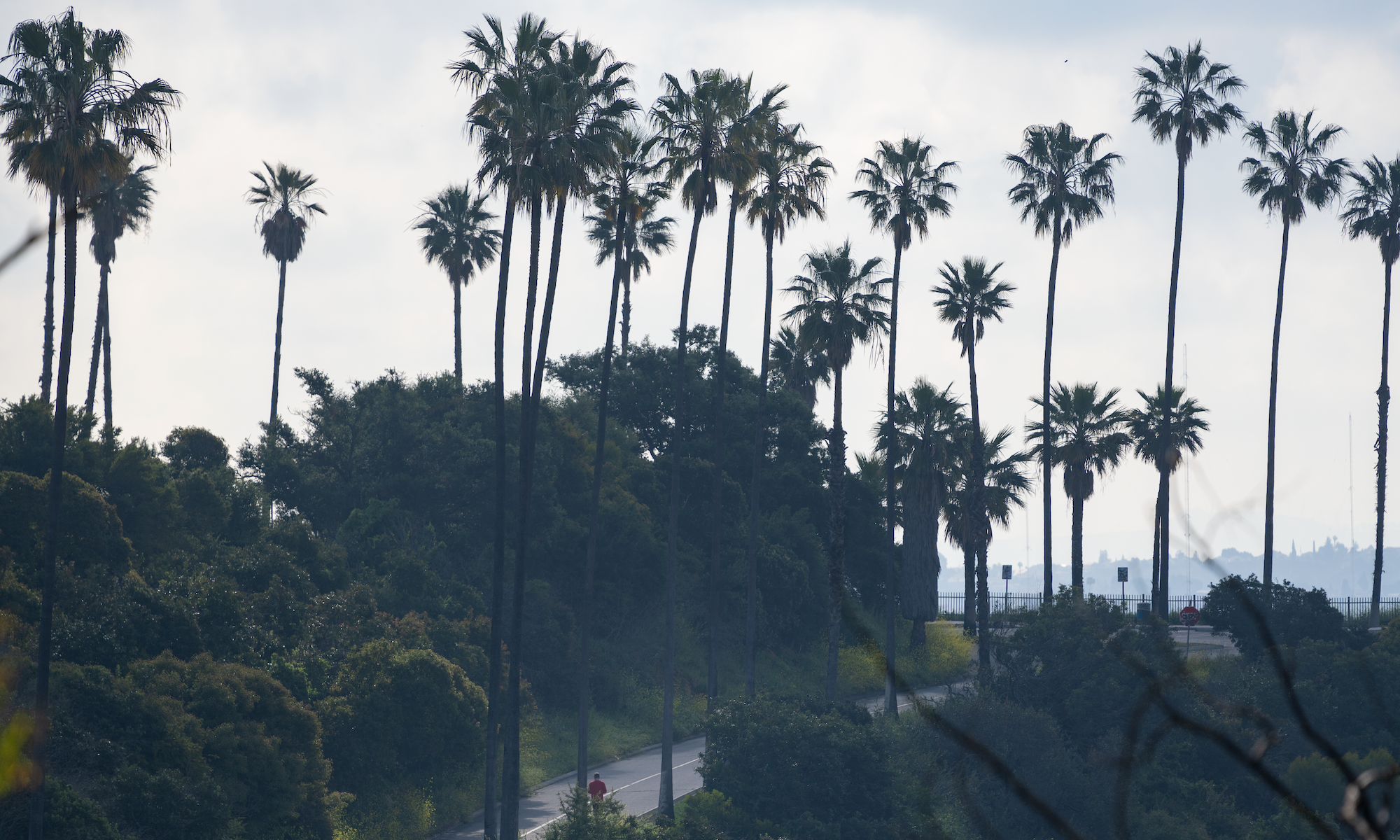Elysian Park, Los Angeles, 2024 Photo: Elon Schoenholz Photography, courtesy The Broad
The Broad museum in Los Angeles announced today that it will embark on a reforestation project that will see the replanting of 100 native oak trees in Elysian Park, with additional saplings in Kuruvungna Village Springs. Inspired by 7000 Eichen (7000 Oaks) (1982-ongoing)—a groundbreaking work by the German artist and environmental activist Joseph Beuys that saw the planting of 7,000 trees paired with basalt stones in and around Kassel, Germany—the initiative is part of the Getty’s PST Art programme of exhibitions across the city.
Entitled Social Forest: Oaks of Tovaangar, the reforestation project will begin with the planting of saplings and accompanying sandstone boulders this autumn and will coincide with Joseph Beuys: In Defense of Nature, a major solo exhibition at the museum opening on 16 November. Together, the projects highlight the artist’s concern for the environment and invite viewers to consider present-day social and ecological issues.
“Beuys’s work and activism addressed environmental concerns that still resonate today,” Sarah Loyer, curator and exhibitions manager at The Broad, tells The Art Newspaper. “He was a founding member of the German Green Party, as well as an artist who sounded the alarm about the climate.”
Joseph Beuys's Rettet den Wald (Save the Forest) (1972) Photo: Joshua White / JWPictures.com © Artists Rights Society (ARS), New York/VG Bild-Kunst, Bonn
In Defense of Nature will feature over 400 works from the museum’s vast collection of the artist’s oeuvre, including pioneering pieces such as Felt Suit (1970), as well as several multiples that Beuys created using humble objects and materials to illustrate the capacity for social and environmental activism in the everyday. The show was organised by Loyer and the Beuys scholar Andrea Gyorody, director of the Frederick R. Weisman Museum of Art at Pepperdine University in Malibu. The exhibition will also highlight Beuys’s 7000 Oaks, tying into the museum’s reimagination of the project. First undertaken as a performance and installation, Beuys created the work to grapple with the trauma of the Second World War.
“Beuys said to never stop planting, and we took inspiration from that message to think of what that action can mean in Los Angeles in 2024,” Loyer says. “The project is about environmental activism as well as reconciliation. We wanted to know what reconciliation and healing looks like for us today. We decided to engage Tongva (Gabrielino) leaders to understand what this project should look like through the perspective of the Indigenous inhabitants of this land.”
Social Forest was organised with the archaeologist Desireé Reneé Martinez and the artist Lazaro Arvizu Jr. (both Gabrielino-Tongva), along with North East Trees, the community-based environmental-justice non-profit.
Lazaro Arvizu Jr. in Elysian Park, Los Angeles, 2024 Photo: Elon Schoenholz Photography, courtesy The Broad
“A lot of what happened in the Second World War in terms of the decimation of communities and environments resonates with the Gabrielino-Tongva people because of colonialism,” Martinez says. “With this project, we thought of what the Gabrielino-Tongva community needs. Because we are not federally recognised and are spread across the Los Angeles Basin, it’s difficult for us to access land to practise our cultural traditions. Acorns, for example, were a staple of our communities in the past, and these oak trees can help us bring back our native food practices when they mature.”
To ensure that the community has access to the eventual fruits of the project, the team is replanting in Kuruvungna Village—the site of the ancient village of Kuruvungna that is stewarded by the Gabrielino-Tongva Springs Foundation—in addition to Elysian Park. The title Oaks of Tovaangar furthers this acknowledgement and uses the Tongva language. The project will also include programming at The Broad and Elysian Park developed with Arvizu and Martinez and incorporating Tongva teachings and practices. In addition, Arvizu helped develop a performance and workshop with the South African violinist Lynn Daphne Rudolph that will take place in February and explore efforts to revitalise Indigenous language, music and culture. The trees themselves will remain as a testament to the ecological and restorative ethos of the project, as well as of Beuys’s creative legacy.
“This is an art piece, but it is also an environmental action and a teaching model for future generations,” Arvizu says. “This project takes Beuys’s philosophy and reflects Indigenous practices to address some of the environmental damage and social-justice issues that have gone on in LA, as well as the colonial history of California. We only get one Earth, and it’s our responsibility to pass along care and knowledge to future generations.”

